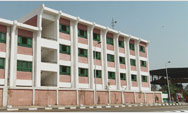Message from the Director - July 2008
What can OFDA do when its efforts to provide life-saving humanitarian assistance to disaster victims are blocked by government authorities in the afflicted country? How do we respond when food, plastic sheeting, blankets, medicines, and other essential relief commodities are blocked from timely distribution to people who desperately need help?
Those questions of “humanitarian access” have surged to the forefront yet again in recent months. In the aftermath of Cyclone Nargis in May, which killed an estimated 85,000 or more people, authorities in Burma impeded international assistance to the disaster zone for several critical weeks. In Zimbabwe, authorities in June ordered the suspension of humanitarian operations by non-governmental organizations (NGOs). In Sudan, authorities in May slowed relief operations by temporarily closing all airports in Darfur to humanitarian traffic. In Ethiopia, government officials are considering new rules that might seriously restrict the work of humanitarian agencies.
Amid these troubling developments, the good news is that emergency relief from OFDA usually arrives rapidly and efficiently to help distressed populations in the vast majority of disasters. In the past five years alone, USAID has responded to 355 declared disasters in all regions of the world.
Most of these natural and manmade disasters never make international headlines and are addressed in a straightforward manner without political interference in the affected country. Our assistance on behalf of the American people usually is eagerly accepted by thankful foreign governments and by grateful citizens as they struggle to overcome devastation and hardship.
When emergency relief is blocked or seriously impeded, however, OFDA works diligently to overcome those obstacles. We are helped greatly by the fact that OFDA provides assistance in accordance with fundamental, widely recognized humanitarian principles.
Our assistance adheres to the “humanitarian imperative”—the core principle that human suffering should be addressed wherever it is found. OFDA provides humanitarian assistance that is politically neutral, socially impartial, and is based on victims’ needs rather than political factors. Our disaster response programs strive to live up to the principle of “do no harm” and seek, to the extent possible, to protect beneficiaries and build local capacities.
OFDA’s consistent adherence to these fundamental humanitarian principles compels us—and indeed, enables us—to provide disaster relief even in countries that have strained relations with the U.S. government. These humanitarian principles open doors that otherwise would be closed.
For example, OFDA during the past five years has responded with humanitarian assistance to emergencies in Cuba, North Korea, Iran, Venezuela, Zimbabwe, and Burma. All of these countries have had difficult political relations with the United States.
In our emergency response to the recent cyclone in Burma, OFDA has been able to overcome constraints imposed by Burmese authorities to provide $21.2 million of OFDA assistance for shelter, food aid, emergency health services, and water, sanitation, and hygiene programs targeted at more than 1 million beneficiaries. USAID’s Food for Peace office has provided an additional $12 million. We were distressed by the early delays that Burmese officials imposed on us and our humanitarian partners in the field. The scale of assistance allowed into Burma during the first weeks was not commensurate with the overwhelming humanitarian need on the ground, but even in Burma our humanitarian efforts are no longer blocked.
OFDA’s experience over the years has demonstrated the importance of cooperation between OFDA and the U.S. Department of State; discussions at the diplomatic level often can alleviate constraints on humanitarian access. Because of political or cultural sensitivities in particular countries, OFDA sometimes eschews high-profile steps such as deployment of OFDA Disaster Assistance Response Teams to disaster zones in favor of less visible steps that channel our support through UN humanitarian agencies, qualified non-governmental organizations, or other international organizations such as the International Committee of the Red Cross.
As the cyclone response in Burma demonstrated, a clear distinction between U.S. military personnel and civilian humanitarian workers also can be crucial in gaining local permission to access disaster zones.
When violent conflict or national authorities claiming “sovereignty” block humanitarian assistance to populations in dire need, USAID and other international humanitarian agencies have resorted at times to politically sensitive cross-border relief efforts that use a neighboring country as a base for relief operations. In special situations, OFDA and other humanitarian agencies over the years have resorted to airdrops of humanitarian commodities, but this highly imperfect tactic usually is used as an absolute last resort when better options have failed.
OFDA has a proud tradition of using creative strategies to overcome obstacles and gain humanitarian access international disaster victims. Our mandate is to save lives and reduce human suffering. It is a responsibility we take quite seriously.
Sincerely,

Ky Luu
Director
Office of U.S. Foreign Disaster Assistance
Back to Top ^
|


